Should You Buy a CPO Electric Car?
The plethora of new and forthcoming electric vehicles is stirring up interest among prospective shoppers, but even as the list of battery-powered cars, trucks and SUVs rapidly expands, their higher prices pose a significant barrier to ownership. Fortunately, today’s increased production and wider variety of EVs are rapidly expanding the options available for used-EV shoppers, who can snag still-great EVs at a steep discount from their new MSRP.
For added peace of mind, most used EVs can come with a certified pre-owned designation, offering the same perks as gas-powered CPO cars: a multipoint inspection, warranty coverage, roadside assistance and special financing rates.
Related: What to Know Before Buying a Used Electric Car
Buying a used EV isn’t a foolproof solution, however. As with any pre-owned car, there are uncertainties that can be amplified when buying used (especially for first-time EV owners), such as driving-range degradation and battery warranties. A CPO certification can boost confidence in the purchase, but it also boosts the price tag and may not be necessary for every used EV.
Before moving forward with a certified used EV, shoppers should compare CPO programs — specifically the warranty coverage, inspection items and finance rates — then evaluate if the benefits are worth the premium over a non-certified vehicle.
What Differentiates a CPO EV?
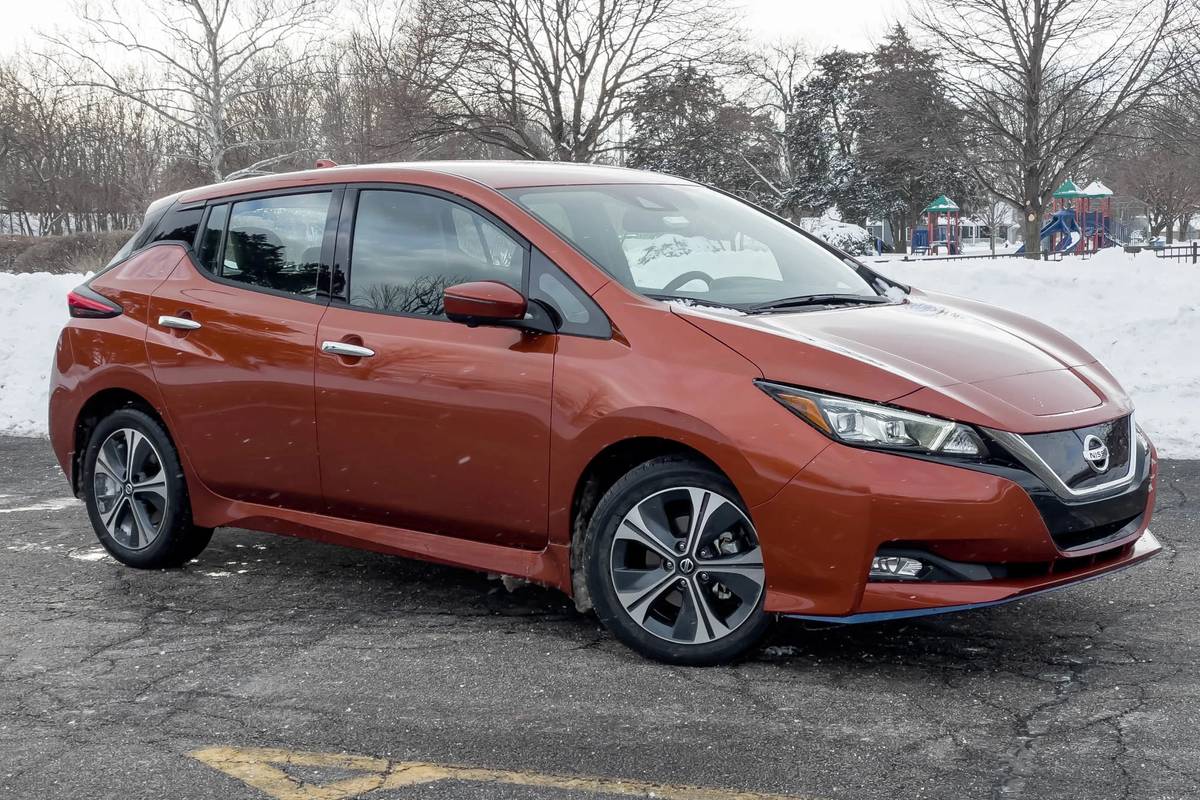
EVs like the Nissan Leaf, Chevrolet Bolt EV and Volkswagen ID.4 are included in their respective automaker’s CPO program, which means they come with similar multipoint inspections and warranty coverage with some EV-specific criteria. For example, the Leaf was one of the first all-electric cars on the market and has been included in the automaker’s CPO program since 2013.
According to Jeff Wandell, manager of EV communications at Nissan, the Leaf has to pass the same evaluation as a gas-powered car with extra qualifications for the battery. “CPO [qualification] for the Nissan Leaf must follow all normal CPO certification procedures for any Nissan vehicle, including a supplemental inspection in addition to the traditional 167-point quality inspection,” wrote Wandell in an email to Cars.com. “Examples of additional inspection items include [the] Leaf’s battery gauge [to measure the remaining capacity], charge-port operation and charge-port sealing cap.” Just like other Nissan CPO vehicles, the Leaf must have less than 80,000 miles, be less than six years old and have a clean vehicle history report. As for the warranty coverage, a CPO Leaf gets an extended powertrain and EV system warranty that stretches the remainder of a new vehicle’s 60-month/60,000-mile warranty for an additional 24 months or 40,000 miles, according to Wandell.
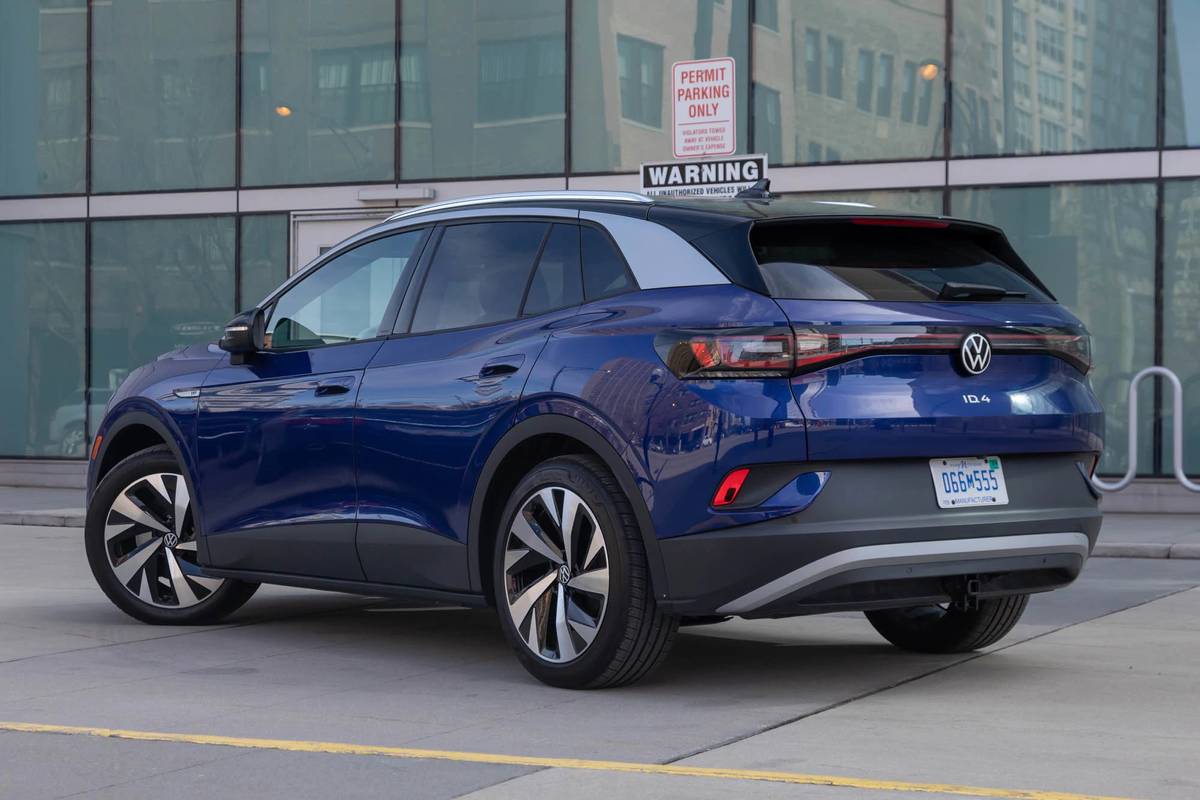
The CPO inspection checklist for the VW ID.4 includes an entire section dedicated to EVs and hybrids, according to Mark Gillies, VW’s director of public relations and reputation. Special items include the condition of the battery that must retain at least 70% of its original capacity. It also evaluates the EV’s regenerative braking system, electric motor, charge port and cables.
The Chevy Bolt EV and EUV come with some special conditions: Each model uses the same 172-point inspection as a gas-powered CPO vehicle with an EV-specific section, according to GM spokesperson Sabin Blake. In addition to the six-year/100,000-mile powertrain limited warranty and 12-month/12,000-mile bumper-to-bumper limited warranty, a CPO Bolt comes with the remainder of the eight-year/100,000-mile new-vehicle battery warranty, which is also available for non-certified used Bolts.
Most CPO programs include a trial subscription of an app-based telematics or connected services plan, which can be especially useful for EV owners. For example, the myChevrolet app, which is included with the OnStar Connected Services plan, allows owners to check vehicle range and battery charge status and find charging stations along a route. A one-month trial of the OnStar plan is included for all CPO Chevys. In some cases, these services are complimentary even without a CPO designation. The FordPass app, for example, comes with specific features for its EVs, including the Mustang Mach-E and F-150 Lightning.
What About Used Teslas?
Although Tesla doesn’t refer to its used certification process as “CPO,” the automaker certifies used models with a 102-point inspection and an extended limited warranty — but it applies only to vehicles ordered directly through the automaker. Used Teslas transfer the remainder of the basic new-vehicle limited warranty of four years or 50,000 miles. If the original warranty has expired, used EVs are covered under a used-vehicle limited warranty that adds coverage of one year or 10,000 miles from the date of purchase. Any remaining balance from the battery and drive unit limited warranty can be transferred to used vehicles. This warranty covers up to eight years and 100,000, 120,000 or 150,000 miles (depending on the model) with a minimum 70% battery capacity retention.
All used Teslas with Autopilot hardware offer one of three semi-autonomous driver-assist options: Autopilot with convenience features (with no access to Full Self-Driving), standard Autopilot that can be upgraded to a Full Self-Driving subscription or Full Self-Driving capability. Thirty-day trials of Tesla’s Premium Connected Services as well as Full-Self Driving (on compatible vehicles) also come with every used Tesla model.
Multipoint inspection components for all used Teslas include Autopilot, displays, steering and suspension, powertrain, brakes and the charging system. While haggling is acceptable for most CPO vehicles, pricing for Tesla’s used vehicles is not negotiable.
A Battery Warranty May Already Be Included

If the vehicle’s battery is the primary concern when buying a used EV, a CPO designation may not be worthwhile. That’s because many newer models already offer a long-term battery warranty that’s transferred to the new owner after purchase. EVs like the Chevrolet Bolt and VW ID.4 come with a battery warranty that’s good for eight years or 100,000 miles, whichever comes first. Some brands, like Hyundai and Kia, extend the warranty to 10 years or 100,000 miles.
It’s important to note that older EVs may not offer the same battery warranty. For example, Hyundai didn’t make the warranty transferable for the original Ioniq or the Kona EV until 2020. This means a CPO designation could be more valuable for one of these older EVs.
Potential Savings, Now With Federal Tax Credits
Going with a CPO EV can provide savings on the purchase price compared to buying a brand-new model: The average monthly advertised price among Cars.com dealers for all CPO electric vehicles was $48,077 through the first half of 2024. Alternatively, the monthly average price of new EVs was $62,887 for the same time period. On the other hand, a used EV with no CPO designation can be an even more frugal choice. The monthly average advertised price for all non-certified used EVs among Cars.com dealers during the same period was $35,646.
Buyers who meet certain income requirements may qualify for additional savings on top of used-car depreciation. A federal tax credit of up to $4,000 or 30% of the vehicle’s sales price (whichever is lower) is now available for used EVs that are purchased from a dealership, cost under $25,000 and are at least 2 years old. The tax credit can now be applied at the time of the sale towards the car’s purchase price, making it easier than ever for buyers to use.
While it’s not as generous as the new-car federal EV tax credit that can knock up to $7,500 off of the car’s purchase price, the used-EV tax credit lacks the strict component-sourcing requirements of the new-EV version. So, you may want to consider buying used if you want to take advantage of this tax credit but choose from a wider selection of vehicles.
More From Cars.com:
- What to Know Before Purchasing an Electric Vehicle: A Buying Guide
- Which EVs (and Buyers) Qualify for the Used Tax Credit?
- Are Certified Pre-Owned Cars Worth It?
- The Basics of Buying a CPO Vehicle
- More EV News
How to Buy a CPO EV
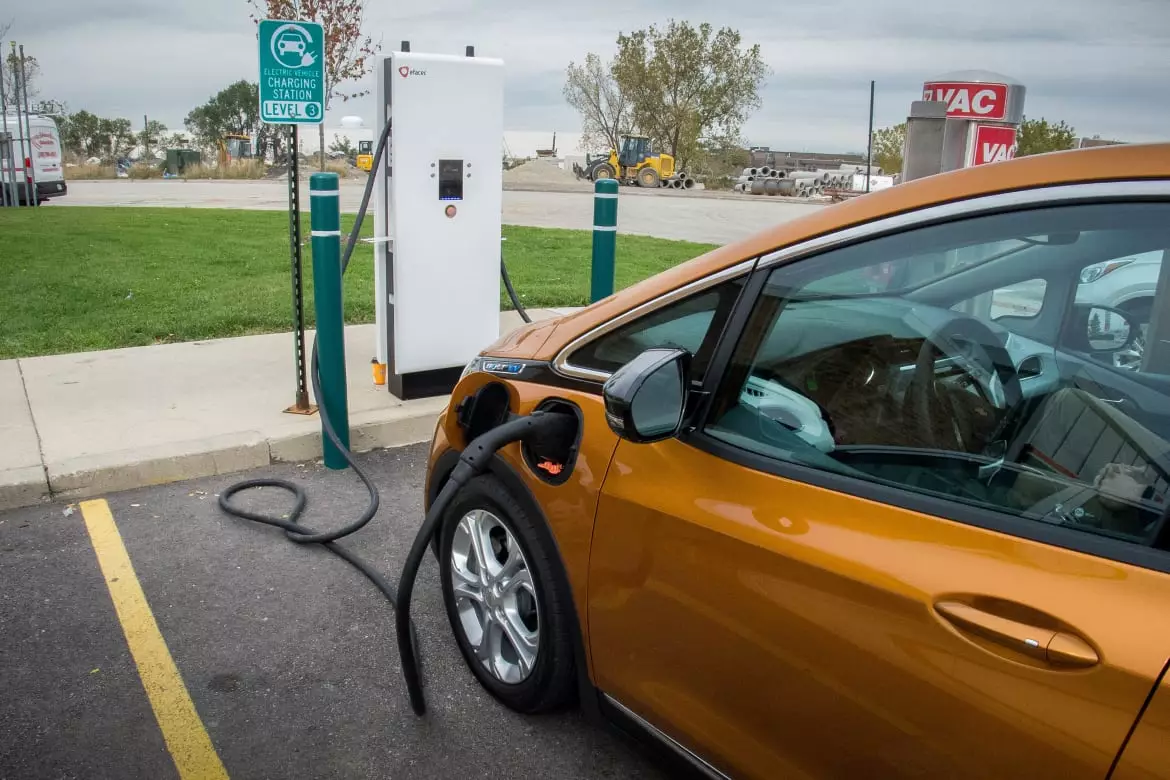
Before committing to a CPO EV purchase, make sure to confirm the specifics of the warranties and the items on the inspection checklist. Even though most CPO EVs include a multipoint inspection, getting the vehicle inspected by an independent mechanic who’s knowledgeable about battery-powered cars can be a smart move. In addition to the vehicle history report included in the CPO program, you can also use a service like Recurrent to obtain a used EV battery condition report for added reassurance.
Next, research the special financing rate for CPO vehicles. Shoppers with good credit that finance through the manufacturer can often take advantage of more competitive rates compared to non-certified used cars. Finally, if you have any hesitations about owning an EV, check if the CPO program comes with an exchange policy. For example, Chevrolet EV shoppers may be eligible for GM’s three-day/150-mile exchange window, and Ford’s CPO program gives buyers 14 days or 1,000 miles to swap vehicles.
Related Video:
Cars.com’s Editorial department is your source for automotive news and reviews. In line with Cars.com’s long-standing ethics policy, editors and reviewers don’t accept gifts or free trips from automakers. The Editorial department is independent of Cars.com’s advertising, sales and sponsored content departments.
Featured stories




